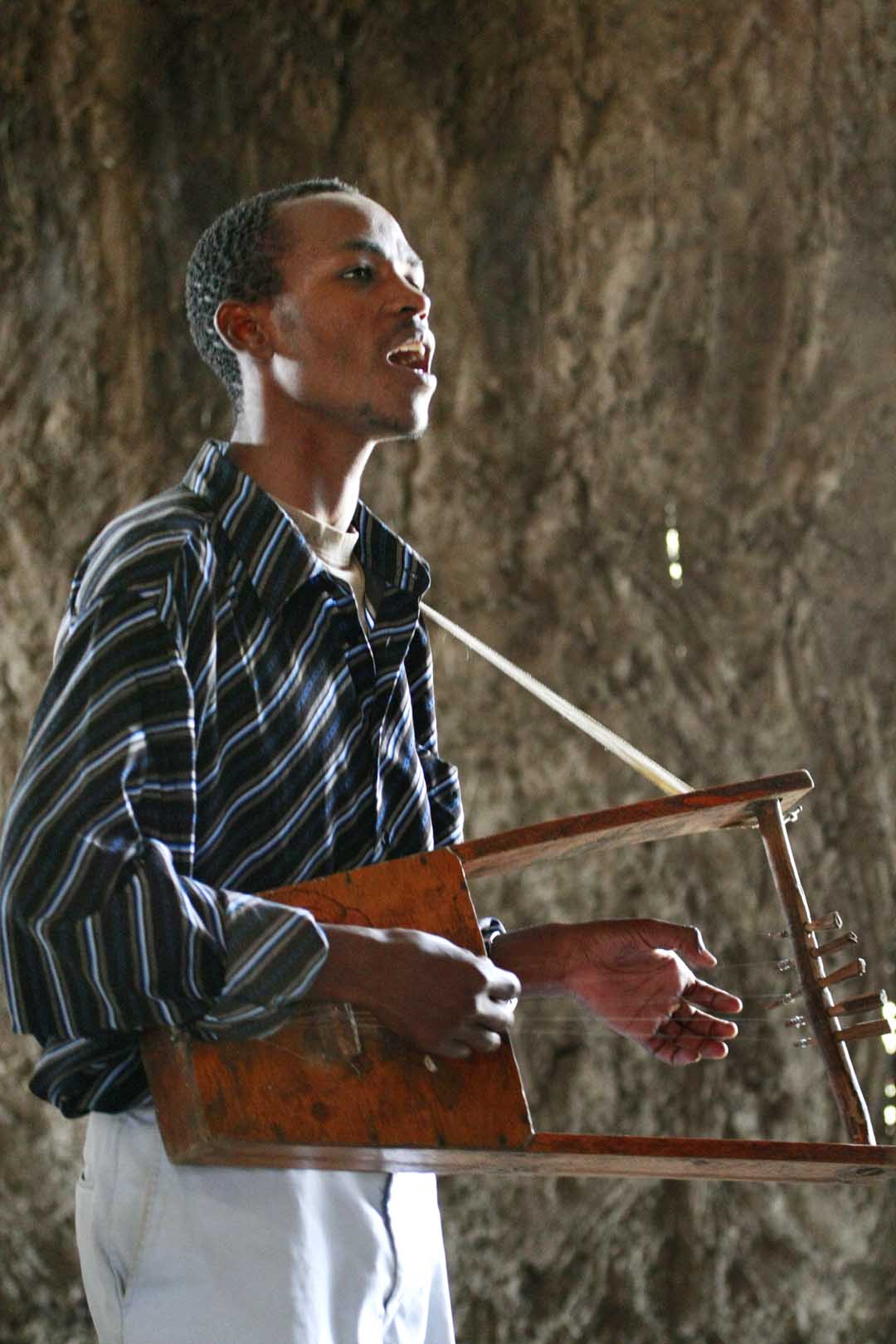Kraar on:
[Wikipedia]
[Google]
[Amazon]
Krar (
 A
A
Amharic
Amharic ( or ; (Amharic: ), ', ) is an Ethiopian Semitic language, which is a subgrouping within the Semitic branch of the Afroasiatic languages. It is spoken as a first language by the Amharas, and also serves as a lingua franca for all oth ...
: ክራር) is a five-or-six stringed bowl-shaped lyre
The lyre () is a stringed musical instrument that is classified by Hornbostel–Sachs as a member of the lute-family of instruments. In organology, a lyre is considered a yoke lute, since it is a lute in which the strings are attached to a yoke ...
from Ethiopia
Ethiopia, , om, Itiyoophiyaa, so, Itoobiya, ti, ኢትዮጵያ, Ítiyop'iya, aa, Itiyoppiya officially the Federal Democratic Republic of Ethiopia, is a landlocked country in the Horn of Africa. It shares borders with Eritrea to the ...
and Eritrea
Eritrea ( ; ti, ኤርትራ, Ertra, ; ar, إرتريا, ʾIritriyā), officially the State of Eritrea, is a country in the Horn of Africa region of Eastern Africa, with its capital and largest city at Asmara. It is bordered by Ethiopia ...
. It is tuned to a pentatonic scale. A modern ''Krar'' may be amplified, much in the same way as an electric guitar
An electric guitar is a guitar that requires external amplification in order to be heard at typical performance volumes, unlike a standard acoustic guitar (however combinations of the two - a semi-acoustic guitar and an electric acoustic gui ...
or violin
The violin, sometimes known as a ''fiddle'', is a wooden chordophone (string instrument) in the violin family. Most violins have a hollow wooden body. It is the smallest and thus highest-pitched instrument (soprano) in the family in regular ...
. The ''Krar'', along with ''Masenqo
The
Masenqo ( am, ማሲንቆ; Tigrinya: ጭራ-ዋጣ (ዋጣ) is a single-stringed bowed lute commonly found in the musical traditions of Ethiopia. As with the krar, this instrument is used by Ethiopian minstrels called ''azmaris'' ("singer" ...
'' and the ''Washint
Washint (Amharic: ዋሽንት) is an end-blown wooden flute originally used in Ethiopia. Traditionally, Amharic musicians would pass on their oral history through song accompanied by the ''washint'' as well as the krar, a six stringed lyre, and ...
'', is one of the most widespread musical instruments of the Amhara ethnic group.
Role in Amhara society
Historical
In Amhara society the ''krar'' was viewed as an instrument inspired by theDevil
A devil is the personification of evil as it is conceived in various cultures and religious traditions. It is seen as the objectification of a hostile and destructive force. Jeffrey Burton Russell states that the different conceptions of t ...
and was therefore inferior, whereas the ''Begena
The ''begena'', also known as ''bagana'' ( am, በገና) is a ten-stringed box-lyre instrument from the Amhara people of Ethiopia, and is the sole melodic instrument devoted only to the ''zema'', the spiritual part of Amhara music.
Etymology an ...
'' was for praising God and seen as sacred. The ''krar'' was used to adulate feminine beauty, to create sexual arousal and to eulogize carnal love.
The instrument has been associated with brigands, outlaws and wanderers. Wanderers played the ''krar'' to solicit food, and outlaws played it to sing an Amhara war song called ''Fano''.
Contemporary
Today, the ''krar'' which used to be the plaything of theAmharas
Amharas ( am, አማራ, Āmara; gez, ዐምሐራ, ʾÄməḥära) are a Semitic-speaking ethnic group which is indigenous to Ethiopia, traditionally inhabiting parts of the northwest Highlands of Ethiopia, particularly inhabiting the Amhara ...
, has become one of the most popular Ethiopian stringed instruments.
The ''krar'' is and was always used to accompany and perform secular song, love songs and (''vulgar'') poetry. The instrument are often played by Poet-musicians called the Azmari
An Azmari (Amharic: አዝማሪ) is an entertainer who sings and plays traditional string instruments of the Ethiopian Highlands. Its comparable to medieval European minstrels or bard or West African griots.
''Azmari'', who may be either male ...
Features
 A
A chordophone
String instruments, stringed instruments, or chordophones are musical instruments that produce sound from vibrating strings when a performer plays or sounds the strings in some manner.
Musicians play some string instruments by plucking the st ...
, the krar is usually decorated with wood, cloth and beads. Its five or six strings determine the available pitches. The instrument's tone depends on the musician's playing technique: bowing, strumming or plucking. If plucked, the instrument will produce a soft tone. Strumming, on the other hand, will yield a harmonious
Harmony, in music, is the use of simultaneous pitches (tones, notes), or chords.
Harmony or harmonious may also refer to:
Computing
*Apache Harmony, a Java programming language Open source implementation
*ECMAScript Harmony, codename for the six ...
pulsation
A pulse, in physiology, is the throbbing of arteries resulting from heartbeat.
Pulse, The Pulse or Pulses may also refer to:
Botany
* Pulse (legume), any agriculturally significant annual leguminous food crop, such as peas, beans, lentils, and ...
.
Resources
* Asnakech Worku, '' Ethiopiques 16: The Lady with the Krar'' (compact disc). Buda Musique 822652, 2003. * ''Ethiopie, chants d'amour'' (Ethiopia, Love Songs). Fantahun Shewankochew, vocals and krar (compact disc). INEDIT/Maison des Cultures du Monde W260080, 1998.Films
*''HELP! – Musikalische Geschichten aus Äthiopien''. Directed by Daniel Schulz.See also
*dull
Dull may refer to:
__NOTOC__ Places
* Dull, Perth and Kinross, Scotland, United Kingdom, a village
* Dull, Ohio, United States, an unincorporated community
* Dull, Texas, United States, a ghost town
People
* Jack Dull (1930–1995), American profe ...
References
Eritrean musical instruments Ethiopian musical instruments Lyres {{Lyre-stub